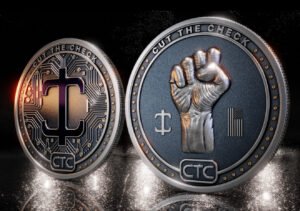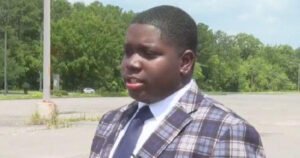Veteran journalist Bob Woodward‘s explosive series of interviews with Donald Trump has not only revealed the president’s blase approach to the coronavirus — an approach that arguably led to nearly 200,000 Americans dying — but it also offered further confirmation of his racist feelings toward Black people and about white privilege.
Excerpts from audiotapes of Woodward’s upcoming book about Trump were published Wednesday and featured the president saying in his own words how severe of a public health threat Trump Says Understanding Black ‘Anger And Pain’ Isn’t His Responsibility: Woodward Tapes posed to the U.S. That interview, in particular, took place before Trump repeatedly described the coronavirus to the American people as a political “hoax” being pushed by Democrats during an election year. The end result has been more than 190,000 deaths of Americans, including notable individuals like Herman Cain who refused to wear personal protective equipment like masks because he believed and repeated Trump’s claims downplaying the coronavirus’ true threat.
Trump later on Wednesday admitted he downplayed the threat — only after the audiotapes were released — and said he didn’t want people to panic if they knew the truth.
But while much of the focus of Woodward’s tapes was rightfully being placed on Trump’s bungling of the coronavirus to unimaginable deadly proportions, buried in the requisite news stories were reports of different interview sessions with the president that provided a deeper glimpse into how he really feels about Black people.
The Washington Post reported that during one interview with Trump on June 19, Woodward asked the president about the role white privilege has played not only in his life but especially in his presidency.
“…And do you have any sense that that privilege has isolated and put you in a cave, to a certain extent, as it put me – and I think lots of White, privileged people – in a cave and that we have to work our way out of it to understand the anger and the pain, particularly, Black people feel in this country? Do you see?” Woodward asked.
It was a notion that Trump literally scoffed at.
“No,” Trump responded in a vocal tone that suggested he couldn’t believe he was even being asked the question. “You, you really drank the Kool-Aid, didn’t you? Just listen to you, wow. No, I don’t feel that at all.”
Trump went on to downplay “systematic or institutional racism in this country” by saying it was “less here than many places.”
While Trump’s association with anti-Black racism is nothing new, his comments to Woodward seemed to be the tangible proof that’s been missing from the mounting circumstantial evidence that he’s continually derided as “fake news.”
And just for good measure, in case Woodward’s tapes didn’t convince people of the president’s anti-Black racism, his hateful ways were further exposed Wednesday with reports about a whistleblower working in the Department of Homeland Security (DHS) claiming his superiors (Trump’s hand-picked cronies) tried to force him to alter the language in a report addressing the threat of white supremacists in America.
According to the whistleblower — Brian Murphy — the original version of the report described white supremacists as “presenting the most lethal threat” to the United States, CNN reported. At the behest of acting DHS Secretary Chad Wolf and Senior Official Performing the Duties of the Deputy Secretary Ken Cuccinelli, the language in the report was later revised to refer to white supremacists as “domestic violent extremists” so as to be more in-step with the “anarchists” groups like Antifa that Trump has decried.
In other words, Trump didn’t want Americans to know two deadly truths — one about the coronavirus and the other about white supremacists.
In addition, Murphy’s whistleblower complaint alleges he was ordered to downplay the threat of Russian interference in American politics and especially the upcoming presidential election.
All of the above emphasizes the need for every eligible American to vote on Election Day. Click here to register to vote if you haven’t done so already.




